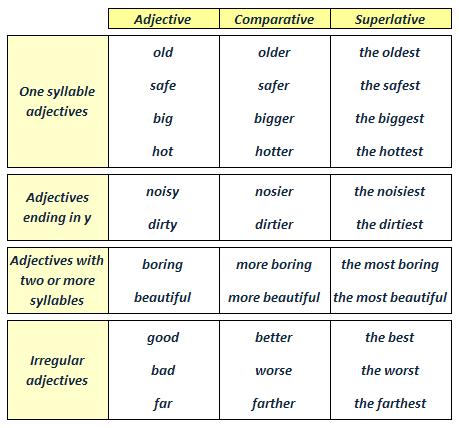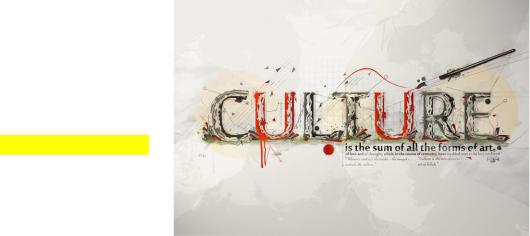
uchebnik_dlya_1_semestra
.pdfSo, you think you want to learn a foreign language quickly? Actually it can be compared to a roller-coaster. Learning another language is probably one of the top things that people begin and never finish. Why is that so? One of the main reasons is that most people don't realize what it takes to really learn another language and they are not prepared for the work it takes.
(B) So, what are some things you need to know before beginning to learn a new language? First of all, you need to know your true motivation for wanting to know another language. It is a natural fact of life that the more motivated you are to do something, the more likely you are to do it and complete it.
Some reasons people give for this are:
a)"I think it would be interesting or fun",
b)"I enjoy learning about other people, and learning their language is a good way to do that",
c)"Smart people know more than one language",
d)"I am going to be living in another country",
e)"I know people who speak another language and I want to be able to communicate with them", and
f)"my family speaks another language and I want to learn my mother tongue".
Obviously some of these reasons are much more serious than others. If you combine moving to another country with the desire to speak to the people around you, your chances of learning that language are higher than the person who just thinks it would be cool to speak another language. The motivation is higher and the need is much more present.
(C ) You also need to know your own personality.
If you do not learn well under pressure, but you know that you are going to be moving to another country, you might want to consider learning that foreign language while it is still just a good idea and not a necessity. Try to keep it fun. Begin with easy phrases that are used in everyday life so that you can see an immediate improvement. This will help give you the confidence you need to keep learning. Remember, you are not going to open your mouth and speak in sentences immediately. Do not add to your pressure by expecting unattainable goals for yourself.
(D)You need to know how you best learn:
1.Are you the type of person who learns by seeing and hearing? Then get out with the people. Find people who speak the language and ask them to use simple phrases with you so that you can pick up the ideas and meanings quickly. Don't worry about repeating everything they say; just listen and have fun. Also do not just pick up a textbook and study for a few days.
2.Are you someone who learns best by practical use? See if you can find someone to live with for a few days. Repeat what they say, paying close attention to pronunciation. Ask your friends to say short phrases and use them in a situation that requires you to use them. The more you use the language in context, no matter how simple the phrase, the faster you will learn. Remember to start simple and slowly add to the complexity of the sentence. For example, start with "I go," then the next day add "I go to the store."
3.Are you someone who just needs to see it in order to understand? Then you are the person who needs to start with a textbook for a few days. Find a good, pocket sized dictionary and carry it with you. Get to where you recognize the words when you see them and see if you can recognize them as people are speaking. Think of it as a verbal
80

word find. Every day sit down with your dictionary or textbook and add about 5 words to your list. Don't skip speaking them though. After you are confident with seeing the words and recognizing their meanings, get someone to go over them verbally with you so you know for sure that you can recognize them when spoken.
(E) Most of all - don't expect too much of yourself, but keep going. If you need a break, take it. Have fun with the language. Find people you like to be around who speak that language. Keep in mind how you learned your own language, and that just like a child needs time to develop a good vocabulary, you will too.
2.Read the text once again. Find the key sentence in each paragraph. Make a summary.
3.Mark each statement as T(True) or F (or False). If false, make corrections.
T F
1.Learning a foreign language is as simple as ABC. It doesn‘t require any special skills.
2.People don‘t understand what learning a foreign language looks like.
3.People are to be motivated to study a foreign language.
4.All learners are the same so it makes no difference what kind of person you are.
5.The best way to learn a foreign language is to start communicating with a person who speaks fluently.
6.Dictionaries won‘t help you a lot.
7.Whatever your result is – keep going!
Grammar practice
Degrees of comparison refer to adjectives being written in different forms to compare one, two or more nouns which are words describing persons, places and things. The three different forms of comparison are the positive, the comparative and the superlative. The positive is the form of the adjective that describes one noun. The comparative form of the adjective compares two nouns. The superlative form of the adjective compares more than two nouns.
Note: One should bear in mind that there are some adjectives that aren't used in the comparative or the superlative. These would include: absolute, adequate, chief, complete, entire, fatal, final, ideal, impossible, inevitable, main, minor, preferable, principal, unique, universal, whole, etc.
Consult Grammar Focus or http://usefulenglish.ru/miscellany/degrees-of-comparison
81

1.In the text there are some sentences where Degrees of Comparison are used. Find them and try to reproduce.
2.Use the Degrees of Comparison to emphasize the degree or level of some quality.
1.What is (complicated) … language in the world? The Basque language spoken in Northern
Spain and Southwest France. Even the speakers of Basque acknowledge it is difficult – they have a saying that it is so hard, the devil doesn't know what they are saying!
2.Everybody knows that the Galaxy Note 2 is (good) … device in the world right now! It is even (good) than the Galaxy S III!
3.San Francisco's Golden Gate Bridge, completed in 1937, is one of (recognizable) … structures in the United States.
4.People believe that (expensive) … technology is, (reliable) … it gets.
5.Our company has launched new applications that offer (sophisticated) … tools and information this year to make your travels (enjoyable) …, (easy) … and (safe) ... .
82
Writing
Write a report about the ways how to master a foreign language. Refer to your language learning experience.
Read and discuss
1. Read the text. Get ready to give a detailed summary.
Top Languages to Learn
There is an increasing demand in the corporate world, and that of government and politics, for individuals who are fluent in some very popular foreign languages. What are these top languages that you should learn to become a prized candidate over others around you? Find out here.
As business models change, so do the requirements for the people who are required to fit into these business models. Among the top requirements, nowadays, is the ability to speak more than one language, i.e. English. Recent research has indicated that hiring managers now pay greater attention to resumes that indicate the knowledge of a foreign language; and not just any foreign language, but a language that is going to prove helpful with foreign business communication. In fact, the need is rising at such a fast pace that an increasing number of colleges and universities are providing degree programs in foreign language where you are taught everything about the language, including business communication. What languages that it to the list of the top languages to learn? Let's take a look.
Best Languages to Learn for Business
Not all of you may be fond of learning foreign languages. However, think of the boost it will give your career, and the added value to your resume it will provide. It is necessary for you to be able to converse in more than one language for that edge over your peers. You will be able to find greater employment opportunities, will be able to communicate with a team that speaks a language other than your own, will be able to take up multiple job profiles (say translations), and you will attain many other benefits by learning a foreign language. If you accept this, it will be easier for you to pick up these languages and improve your fluency in these. Also, your capability in languages will be of higher quality if you start at as early an age as possible. Here is a list of languages, the knowledge of at least one of which, will give you an added advantage.
Spanish
Being one of the most common languages in the United States of America and outside, learning to communicate in Spanish is a great choice. A lot of business communication needs to be carried out in Spanish and English, and the need to develop foreign documents in this language is also high. If you have already been acquainted with Spanish people as a child, or with some who are your neighbors, you will find that picking up this language is easy. Spanish is placed number one in the list of top languages to learn because it has been found that the pay for candidates fluent in this language is higher; a very important reason you should be learning this language.
French
Another language that is popular in numerous parts of the world, apart from France itself, is French and learning French is actually very simple. It is also a very common language in the U.S, which definitely means there is going to be a need for individuals who can communicate fluently in this language. If you have already learned Spanish, you may find
83
picking up French easier. Even if not, learning French is simple as long as you pay due attention to the language.
German
German is known to be the easiest foreign language to master for English speakers. With the origins of certain words being similar, German is another language that you could learn to benefit from it. German companies have made a mark on the global economy, which is why the requirements for persons who can speak the language is only increasing.
Mandarin – Chinese
China is being touted as the next super power, a top reason why experts are recommending it as one of the best languages to learn as of this day and age. It is definitely a very difficult language to learn, and there are differences in the dialects based on the location in the country. However, a fair knowledge of the language is good enough to take you places at least for a start. Studies have shown that an increasing number of people are taking interest in learning the language for business communication, international relations, and translations of foreign documents.
Some more important languages that are essential for different purposes include Arabic, Russian, Tagalog (language of the Philippines), and Japanese (another important super-power in the world). Apart from better business and employment opportunities, learning a foreign language also introduces you to the culture of different countries and increases your sensitivity towards these cultures. It also contributes to your creative development because you are exposed to a different way of life, attitude and perception. It makes you a more accepting and open individual. This should convince you to learn at least one of these top languages and gain an edge over several others out there.
2. Point out main ideas of each paragraph and fill in the table.
Language |
Reasons of learning |
|
|
|
|
|
|
|
|
|
|
|
|
|
|
|
|
|
|
|
|
|
|
|
|
3. Critical thinking task. Using the results of analysis in ex.2 explain the necessity of learning every particular language.
84

Project work
How do you go about identifying your strengths and weaknesses, and analyzing the opportunities and threats the learner of a foreign language faces? SWOT Analysis is a useful technique that helps you do this.
Perform SWOT analysis of your language skills.
Strengths: |
Weaknesses: |
What do I do well? |
What could I improve? |
Opportunities: |
Threats: |
What good opportunities are opened to |
What could harm me? |
me? |
|
2.Consult with you language teacher. Work out the programme for self-development.
3.Read and translate the following text. It may help you to create your personal strategy of foreign language acquisition.
Metaphors for Language Learning Inspiration
1. A Desk Covered in Scraps
Language learning is like a desk covered in bits of fabric, old ceramics, shiny plastic buttons, rough pieces of recycled paper. You sit down before the desk and sigh. But then, inspiration strikes, and you start sorting through the bits and pieces and putting together a mosaic. And before you know it, all the disparate scraps come together, and you have….a conversation.
The point: let go of your obsession with logic and order, and get scrappy. Figure out how to piece together what you know and make it work.
2. A Game-Playing Date
Language learning is like dating a coy, flirtatious dude (or gal) who strings you along a bit, making you feel so smart, so sexy, so cool, and then suddenly stands you up.
85
You find yourself completely lost in some restaurant, unable to put together a sentence, realizing how little you know. You go through a bitter phase in which you swear off men/women.
Then, you meet some cute, sweet thing on the street one day, and your faith is instantly restored.
The point: there will always be moments, no matter how confident you feel or how much progress you‘ve made, in which you feel like the rug has been pulled out from you.
It‘ll always be harder and more intimidating to speak with certain people, and there will inevitably be times when all the language you‘ve been practicing goes flying from your head at the crucial moment.
3. A Department Store
Language learning is like shopping in a massive department store with countless floors and boutiques.
You try on suits, miniskirts, overalls, knee socks, baggy sweaters, heels, boots.
Some make you feel uncomfortable and constricted. Some feel so good it‘s almost like an addition to, or slight alteration of, your identity.
The point: Not every language will fit perfectly. I feel much more natural, much more like myself, speaking in Spanish than in French. I‘m still happy that I speak French and I love speaking it, but I can recognize that sometimes it just doesn‘t fit with my personality.
Understanding that some languages fit you better than others can help you get beyond some of your frustration with language learning.
4. An Archeological Dig
Language learning is a process of cultural excavation. At first, you‘re simply pondering over shards and fragments, holding them up to the light, trying to put them in context.
Little by little, the culture behind the medley of artifacts starts to come through.
The ways people think and behave – and have thought and behaved over time – reveal themselves through the bits and pieces you‘ve uncovered.
The point: Language is culture. Culture is language. This basic lesson takes some time to figure out.
The longer you speak a language and the more time you spend in areas where it‘s the native tongue, the better chance you stand of getting access to a new way of thinking and a new way of seeing the world.
Little by little, you come to realize that phrases and expressions you use for the sheer practical purpose of communication are deeply cultural, and reveal cultural values and beliefs.
5. Driving through a fog
Language learning is like driving up a long winding road through a thick fog. You arc around curve after curve, hypnotized by the monotony and the concentration of driving, by the feeling of being totally lost and insulated in your little car world.
Then you break through the fog. You‘re at the flat peak of the mountain and a whole valley of undulating green, edged by a distant bay, spreads before you.
―Holy shit!‖ you think. This is what I‘ve been approaching!?‖
The point: Immersion is a fog.
If you‘re really, truly immersed in a language and unable to escape it, you‘re probably going to spend quite a bit of time feeling completely isolated and unsure of yourself.
You‘re going to muddle through things and feel a bit lost in every conversation, just trying to inch up the road.
86
And then suddenly, there will be a moment, or moments, when you can sense how far you‘ve come.
Additional reading
Have fun
Jokes
To make a long story short...
A missionary goes to Africa to visit a community, a very old, primitive tribal community. He gives a long sermon. For half an hour he tells a long anecdote, and then the interpreter stands up. He speaks only four words and everyone laughs uproariously. The missionary is puzzled. How is it possible that a story half an hour long can be translated in four words. What kind of amazing language is this? Puzzled, he says to the interpreter, "You have done a miracle. You have spoken only four words. I don't know what you said, but how can you translate my story, which was so long, into only four words?"
The interpreter says, "Story too long, so I say, 'He says joke – laugh!' "
Help!
Two translators on a ship are talking. "Can you swim?" asks one.
"No" says the other, "but I can shout for help in nine languages."
How to Make Money from Translation
A Mexican bandit made a specialty of crossing the Rio Grande from time to time and robbing banks in Texas. Finally, a reward was offered for his capture, and an enterprising Texas Ranger decided to track him down. After a lengthy search, he traced the bandit to his favorite cantina, snuck up behind him, put his trusty six-shooter to the bandit's head, and said,
"You're under arrest. Tell me where you hid the loot or I'll blow your brains out."
But the bandit didn't speak English, and the Ranger didn't speak Spanish.
As luck would have it, a bilingual lawyer was in the saloon and translated the Ranger's message. The terrified bandit blurted out, in Spanish, that the loot was buried under the oak tree in back of the cantina.
"What did he say?" asked the Ranger.
The lawyer answered, "He said, 'Get lost, Gringo. You wouldn't dare shoot me.'"
And finally, the most hilarious joke about the ex US President George Bush, Jr, a very special man, who obviously had particular troubles with some things that were beyond the scope of the US borders. Enjoy!
http://www.otoons.com/politics/condoleezza.htm
87

Module 4. Life and culture
Unit 1. Defining Culture
Lead-in.
What do you think about the importance of learning about other cultures in today’s multicultural Global Village?
What do you think Global Village is ?
What is culture? Can you give any definitions on the spot?
What is the first thing that comes to your mind when you hear the word ―CULTURE‖? Music? Art? Literature? Cultural patterns of behavior?
Are beliefs and values shared by people belonging to one and the same cultural community? Anything else?
What does this word mean personally to you?
Reading and vocabulary
WHAT CULTURE IS
.
1. The quotations reflecting different points of view on what culture is are presented in this part. While reading try to identify the key words, related to the concept “culture”, paying attention to the word combinations in bold. Compare your list with your partners’ lists and decide what should be included into this list by all means. Ground your decision.
―What is culture? I believe, it is the way of life of a particular society or group of people, including patterns of thought, be-
liefs, behavior, customs, traditions, rituals, dress, language, as well as art, music and literature‖. (Elizabeth Primrose)
―Culture is the collective programming of the mind which distinguishes the members of one group from another‖. (Geert Hofstede)
―Very often when we use the word "culture", we mean the customs, beliefs, art, music and add the other products of human thought which were made by a particular group of people at a particular time‖. (Adam Cotte)r
―Culture, the acquainting ourselves with the best that has been known and said in the world, and thus the history of the human spirit”. (Matthew Arnold
―Culture is the shared set of assumptions, values, and beliefs of a group of people by which they organize their common life‖. (Gary Wederspahn)
―Culture is the system of information that codes the manner in which the people in an organized group, society or nation interact with their social and physical environment‖. (Psychology textbook)
―Culture consists in patterned ways of thinking, freezing and reacting. The essential core of culture consists of traditional ideas and especially their attached values”. (Clyde Kluckhohn
―Culture consists of concepts, values, and assumptions about life that guide behavior and are widely shared by people”. (Richard Brislin)
―Culture is an integrated system of teamed behavior patterns that are characteristic of the members of any given society. Culture refers to the total, way of life for a particular group of people. It includes what a group of people thinks, says, does and makes — its customs, language, material artifacts and shared systems of attitudes and feelings”. (Robert Kohls)
―Culture refers to the experience, knowledge, values, and behaviors of any one group of people‖. (Carol Archer)
―Culture is a complex concept, with many different definitions, But, simply put, "culture refers to a group or community with which we share common experiences that shape the way we understand the world. It includes groups that we are born into, such as gender, race, or national origin. It also includes groups we join or become part of. Jot example, we can acquire a new culture by moving to a new region, by a change in our economic status, or by becoming disabled. When we think of culture this broadly, we realize we all belong to many cultures at once. In a world as complex as ours, each of us is shaped by many factors, and culture is one of the powerful forces that acts on us. In other words, culture is central to what we see, how we make sense of what we see, and how we express ourselves‖. (Marcelle E. DuPraw and Marya Axner)
―Culture is but the fine flowering of real education, and it is the training of the freezing, the tastes and the manners that makes it so‖. (Minnie Kellogg)
―Culture is everything. Culture is the way we dress, the way we carry our heads, the way we walk, the way we tie our ties — it is not only the fact of writing books or building houses‖. (Aime Cesair)
―Culture is to ''know the best that has been said and thought in the world."(Matthew Arnold)
2. Read the following interpretation of the concept “culture”. It is given in one of the Russian reference books. Compare with the definitions above. Point out differences and similarities.
Культура (от латинского слова «CULTURE» -возделывание, почитание, воспитание, образование, развитие) – исторически определѐнный уровень развития общества, творческих сил и способностей человека, выраженный в типах и формах организации жизни и деятельности людей, в их взаимоотношениях, а также в создаваемых ими материальных и духовных ценностях.
(Популярный энциклопедический словарь.- М.:Научн, изд-во: Большая Российская энциклопедия, 1999)
